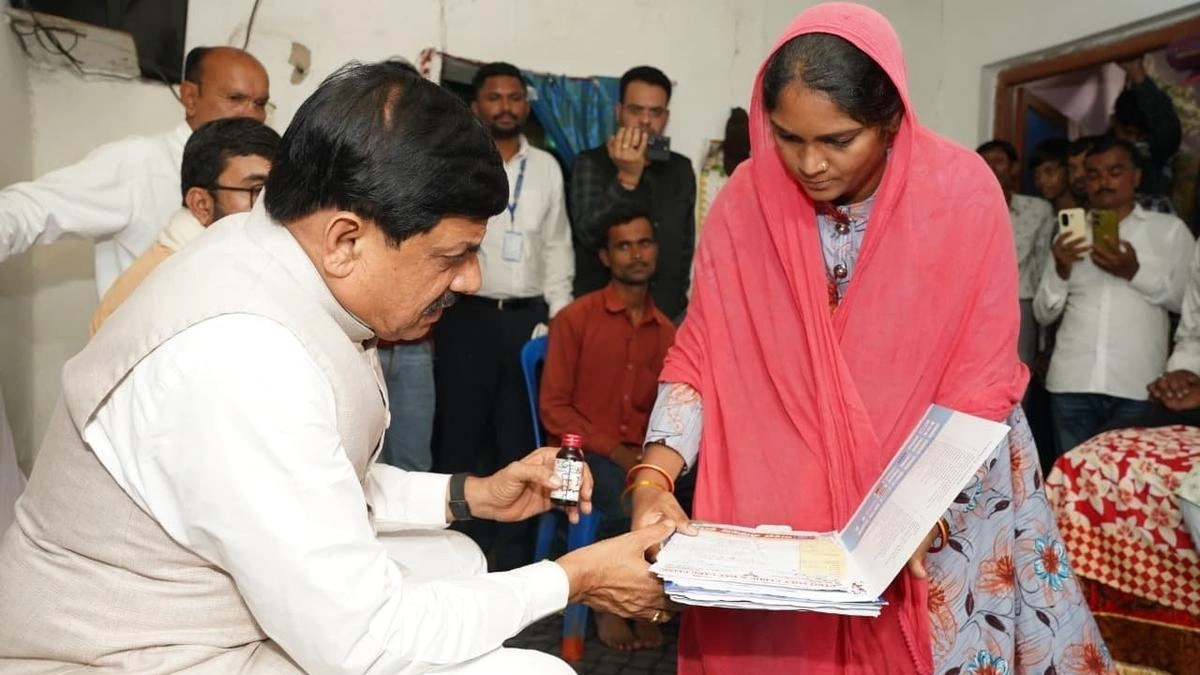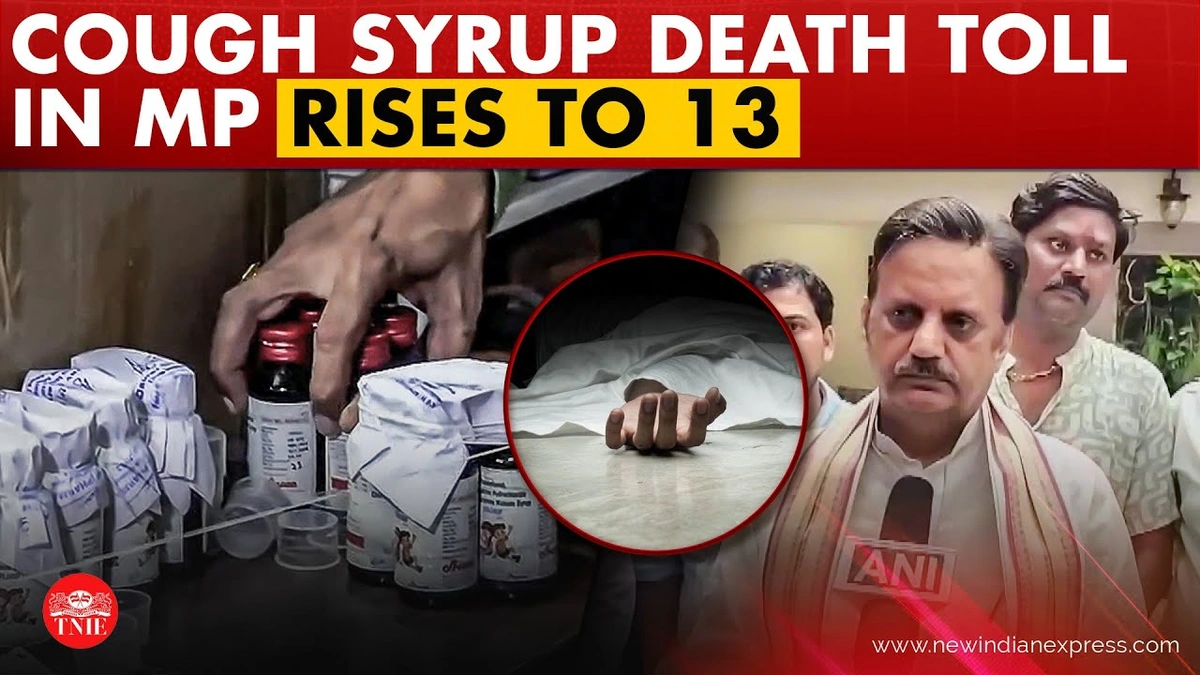MP Cough Syrup Deaths | Doctor Arrested, Death Toll at 11, SIT Investigates Pharma Company
The news is grim. Eleven lives lost, a doctor in handcuffs, and a pharma company under the microscope. But the headlines only scratch the surface. The real question isn’t just what happened in Madhya Pradesh (MP) regarding these Madhya Pradesh cough syrup deaths , but why . Why did this happen? What systemic failures allowed a seemingly harmless cough syrup to become a killer? And perhaps most importantly, what can be done to prevent this tragedy from ever happening again? Let’s dive deep, shall we?
The Tip of the Iceberg | More Than Just Bad Medicine

It’s easy to point fingers – at the doctor, at the company, at regulatory bodies. And yes, accountability is crucial. According to news reports, a Special Investigation Team (SIT) has been formed to investigate the pharma company involved. But the arrest and the investigation are just the beginning. The deeper issue is the potential for widespread substandard or counterfeit drugs to enter the market. What fascinates me is how easily something that is meant to provide comfort, and relieve symptoms can turn into something deadly, and can lead to cough syrup poisoning .
We need to ask ourselves: Are the current quality control measures robust enough? Are the penalties for producing and distributing substandard drugs a sufficient deterrent? Are there loopholes in the system that unscrupulous manufacturers can exploit? The truth is, the cough syrup tragedy in MP shines a harsh light on the vulnerabilities within the Indian pharmaceutical industry.
The Labyrinth of Regulations | Are They Enough?
India’s pharmaceutical sector is vast and complex. While there are regulations in place, their enforcement is often lax. State drug controllers, responsible for licensing and monitoring pharmaceutical manufacturing units, are often understaffed and under-resourced. This can lead to compromises in quality control and oversight. And, let’s be honest, the lure of quick profits can sometimes outweigh ethical considerations.
Moreover, the supply chain is long and convoluted, making it difficult to track products from manufacturer to consumer. This increases the risk of counterfeit or substandard drugs entering the market undetected. To ensure people’s health, we need to have a strict drug regulatory framework .
But regulations alone aren’t enough. What’s also needed is a culture of quality and compliance within the pharmaceutical industry itself. Companies need to prioritize patient safety over profits and invest in robust quality control systems.
The Human Cost | Beyond the Statistics
Eleven deaths. That’s the official count. But behind each number is a story of loss, of shattered families, of dreams cut short. It’s easy to get lost in the technicalities of regulations and investigations, but we must never forget the human cost of this tragedy. Imagine being the family member who is suffering from the loss of their loved one because of contaminated cough syrup .
These weren’t just statistics; they were people. Mothers, fathers, children. Their lives mattered. And their deaths should serve as a stark reminder of the importance of ensuring the safety and quality of medicines.
What fascinates me here is the ripple effect of grief and trauma that spreads outwards from each loss. It’s not just eleven individuals gone; it’s a community scarred, a trust betrayed. The emotional angle is crucial to understanding the full scope of this disaster.
Moving Forward | A Call for Action
So, what needs to be done? First and foremost, a thorough and impartial investigation is essential to determine the root cause of the tragedy and hold those responsible accountable. This means not just punishing the individuals directly involved, but also identifying and addressing any systemic failures that contributed to the incident. Secondly, the government needs to strengthen regulatory oversight of the pharmaceutical industry. This includes increasing the resources and capacity of state drug controllers, tightening quality control standards, and imposing stricter penalties for violations. You can find more information about drug regulations on various government websites. For example, you can visit the website of the Central Drugs Standard Control Organisation (CDSCO) .
But the onus isn’t just on the government. The pharmaceutical industry itself needs to take proactive steps to ensure the safety and quality of its products. This includes investing in robust quality control systems, implementing rigorous testing protocols, and promoting a culture of compliance within their organizations. What is more, the drug manufacturing practices must adhere to the highest global standards.
The public also has a role to play. Consumers need to be vigilant and only purchase medicines from reputable sources. They should also report any suspected substandard or counterfeit drugs to the authorities. A common mistake I see people make is buying medicines from unverified sources without checking its authenticity. The one thing you absolutely must double-check on the medicine is to verify its manufacturing date.
Let’s be honest, there’s no easy fix. But by working together – government, industry, and consumers – we can create a safer and more reliable pharmaceutical system in India. This is essential to protect the health and well-being of our citizens. And the investigation has to uncover who were the people responsible for substandard medicine manufacturing .
FAQ Section
Frequently Asked Questions
What exactly happened in Madhya Pradesh?
Eleven people died allegedly after consuming cough syrup manufactured by a local pharmaceutical company. A doctor has been arrested, and a Special Investigation Team (SIT) is investigating the matter.
What is the government doing about it?
The government has formed an SIT to investigate the incident and has promised strict action against those found guilty. They are also reviewing the quality control processes of the pharmaceutical company.
How can I ensure the medicines I buy are safe?
Always buy medicines from reputable pharmacies. Check for proper labeling, expiry dates, and manufacturing licenses. If something seems off, report it to the authorities.
What are the long-term implications of this incident?
This incident has raised serious concerns about the quality control and regulatory oversight within the Indian pharmaceutical industry. It may lead to stricter regulations and greater scrutiny of pharmaceutical companies.
Where can I report substandard medicines?
You can report substandard medicines to your local drug inspector or to the Central Drugs Standard Control Organisation (CDSCO).
What is the potential impact on the pharmaceutical industry in India?
This incident will likely lead to increased regulatory scrutiny and may impact the reputation of the Indian pharmaceutical industry. Companies may need to invest more in quality control and compliance.
In the end, this isn’t just about cough syrup. It’s about trust. Trust in the medicines we take, trust in the companies that make them, and trust in the system that’s supposed to protect us. When that trust is broken, the consequences can be devastating. The soul of medicine is healing, and when that is poisoned, we all suffer.













